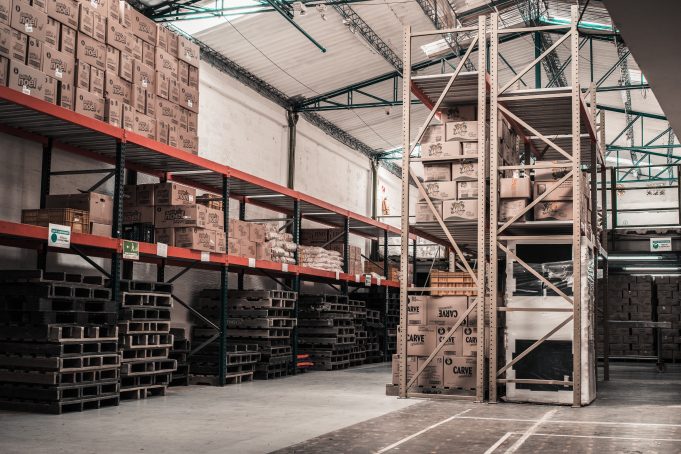Several UK businesses decided to stockpile their products once the Brexit transition period ended on January 31, 2020. This was mainly due to the increasing import costs and trade restrictions with EU nations when the United Kingdom exited the European Union’s Single Market and Customs Union. To avoid running out of stock, UK businesses have turned to warehouse storage solutions to store various goods, including food and clothing.
Owing to the reduced storage capacity, the limited supply unmatched by the increased demand has led to a staggering increase in warehousing price. The price increased by 25% in the last three months in 2018. The Food Storage and Distribution Federation (FSDF) has 350 warehouse owners. The FDSF owns over 75% of the commercial chilled food and frozen warehousing facilities, and they have been turning customers away in recent times.
The rising problem of reduced storage supply
The United Kingdom imports more than 40% of its food and beverages from other countries. Bulk storage is expected to aid businesses in meeting supply chain demands while avoiding trade issues that have arisen with the European Union. Following the Brexit decision, stockpiling has been critical in mitigating stock shortages caused by bottlenecks at UK ports and borders. On the other hand, stockpiling is not appropriate for all commodities, particularly those that are perishable or have a short shelf life. The frozen food business has been hurt the hardest by the Brexit vote and crowded port circumstances due to the reduced and limited cold storage capacity, making it inconvenient for businesses to buy frozen items in bulk.
The demand for storage space has led most of the UK’s warehouses to run out as many UK firms discovered stockpiling to be the solution. The growth in e-commerce transactions has created a requirement for more than 30 million square feet of new warehouse space by 2021, adding to the already present strain on storage spaces.
Brexit has highlighted the need for additional readily available storage space. Over 85% of warehouses in the UK claim to be at capacity, driving up the cost of storage for firms and importers. For example, Western Industrial Business Interiors, a UK supplier of storage mezzanines for warehouses and storage spaces, observed a 25% rise in Brexit-related inquiries in 2021.
Increased demand for Storage space
According to a survey conducted by the UKWA, the business received 85% more inquires after the Brexit vote. However, businesses could not fulfil 75% of these inquires, indicating how stockpiling has contributed significantly to the issue. The supply chain manager at Horizon Cargo said that their storage facility was fully occupied even though at the start of 2017, only 50% of the storage facility was occupied. This turning down of customers is concerning, considering the massive size of the storage facility consisting of over 6000 pallets based on 7430 square meters of land.
The supply chain manager further added that most of the increase in inquires was from unsolicited business owners. Compared to one or two inquiries received every month, the company is now receiving three to four inquiries within a week. The variety in the inquiries has also increased, and the company is now receiving inquiries for carpets, tiles, food, telecom equipment and several others.
What can be done to tackle the reduced storage capacity?
The vacancy rate for specialised warehousing in the UK has declined to a staggering 5.6 percent, and firms have shifted their focus. They are now concentrating on enhancing their ability to satisfy current storage needs. Creating more warehouse space in the UK, on the other hand, is a highly expensive, complex, and time-consuming job. Because of the increased demand, warehouse storage providers will need to make further efforts to enlarge their warehouses to handle more items and even install more refrigeration to solve the issue related to the storage of frozen items. Amazon is pondering over the option of shifting its stock to other continental European warehouses.
Conclusion
The issue of the warehouse capacity reaching its maximum limit is a consistently rising issue. With the increased demand for storage space, unmatched by the shortage in storage space, it is pressing that something should be done to resolve the issue. All frozen and pharmaceutical items warehouses have been wholly booked till April; thus, alternatives need to be explored. Overall, it can be concluded that the post-Brexit vote has worsened the situation, and the restrictions placed have congested the situation at the ports.














